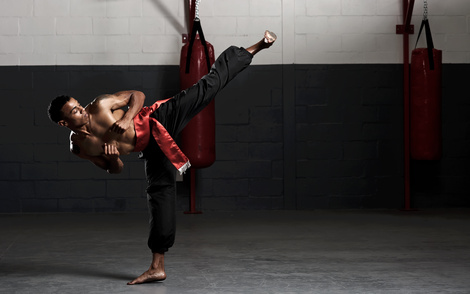“I never fall down. I always fight.” The words of Gianni Versace, the founder of the eponymous fashion brand, say a lot about the perception of entrepreneurship.
Building a business is exhilarating and self-affirming, but when you get started, every day can feel like a fight for existence.
The language of business, too, is colourfully illustrated with warlike imagery – from “bite the bullet” to “divide and conquer”, business jargon is rife with aggressive maxims.
In recent years, world-straddling entrepreneurs have become household names. These titans of industry, such as Mark Zuckerberg, Jeff Bezos and Elon Musk, have all become associated with a sort of single-minded intensity that characterises their meteoric rise out of obscurity.
The message of films like The Social Network, which depicts Zuckerberg’s development of Facebook, is that focus and aggressive determination – often at the expense of friends, relationships and, crucially, empathy – are the key components of building a business.
While intensity and drive are clearly vital characteristics for would-be entrepreneurs, this focus on growth at any cost is narrow-minded and, ultimately, limiting.
Perhaps surprisingly, it was walking into a martial arts dojo in Acton some twenty-five years ago that taught me that forcefulness alone isn’t the way to succeed in business.
When I first started to train in Kung Fu, I was drinking and smoking too much. At that time, I was working for my father’s tyre-fitting service, Town and Country Tyres, which went on to be acquired by Kwik Fit.
Taking up martial arts had both a physical and mental impact on me, and ultimately gave me the focus to found my own mobile tyre-fitting service – Event Mobile Tyres, now AA Tyres – with former Kwik Fit colleague, Gary Moloney.
But like many other would-be entrepreneurs who dream of running their own business – which is about a quarter of adults, according to recent data – the thought of leaving a comfortable job to start a new company was daunting.

And at the risk of sounding fanciful, it was the three central tenets of martial arts of respect, control and balance that taught me the most important lessons about starting up a business.
Unlike the commonly held outsider misconception, martial arts isn’t about dominating with strength. The smallest opponents can also be the most agile.
When bringing a product/idea to the market, you need to respect your competition and the market, and understand the strengths and challenges. An all-out display of your own ideas without a comprehension of the wider environment will rarely end well.
Control, which is about assessing and taking the best course of action in Kung Fu, is a good limiter on overreaching business ambitions. It can be tempting, as an entrepreneur, to want to arrive at your destination immediately. Even the most successful, global businesses don’t achieve success overnight.
As an entrepreneur, control is about tempering your ambitions, ensuring you build the right team around you, securing appropriate investment and developing a solid foundation that will allow your business to grow at a sustainable pace.
Finding this equilibrium between expectation and real growth is also about balance. In martial arts, without balance you have no foundations for success, so the question is whether the leadership, organisation and methods are in balance with the business requirements.
As businesses grow, they will inevitably be buffeted by external factors. It might be tempting to choose investment, for example, based on how it can scale your business, but if that involves ceding most of your control to an outside body, is that the right sort of funding for you? Working out what you want from the start is important and that should be your grounding.
In sum, business rather like Kung Fu is about having focus, discipline, and maintaining a path that creates competitive advantage, sustainability, and continuous development within a framework. Within the latter, you have key factors such as leadership, values of respect and collaboration, goals, individuals and teams, which establish a system.
This system creates the culture and drives the behaviour, not just in the dojo but also in office.
Mark Shankland is the MD of AA Tyres.






